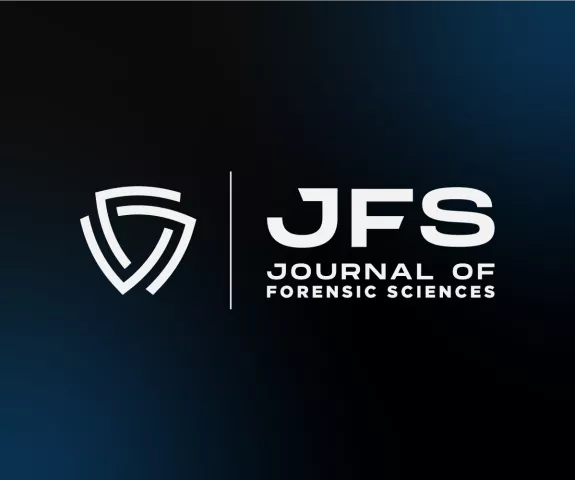
Information for JFS Authors
The Journal of Forensic Sciences (JFS) is the official publication of the American Academy of Forensic Sciences (AAFS). The mission of the JFS is to advance forensic science research, education and practice by publishing peer-reviewed articles of the highest quality and impact. Authors should submit their manuscripts electronically via Manuscript Central. Click HERE to submit a manuscript.
The JFS publishes original material in the following categories:
Commentary
The EIC and/or Associate Editors may invite respected researchers to submit a Commentary on his/her area of expertise or on a paper to be published in an upcoming issue of JFS.
Critical Review
JFS welcomes detailed Critical Reviews of a topic area of interest to forensic science. Critical Reviews may be invited by the EIC and are subject to peer review. Non-critical, narrative compilations of literature will not be accepted. Critical Reviews will be peer-reviewed for quality, considering, among others, the following factors:
- A stated, recognized, and described protocol for the review, e.g., PRISMA.
- Clear search methodology to be described and must include:
- Inclusion and exclusion criteria
- Databases searched
- Years searched
- Any limitations on language of publication, etc.
- A flow chart showing the number of studies identified and then those rejected and those assessed. Flow chart examples can be found HERE.
- A tabulated list of considered papers with a quality of evidence rating and a risk of bias assessment using an appropriate tool or tools. Some suggested tools can be found HERE.
- The assessment of quality and bias must be undertaken by two independent reviewers.
- Appropriate meta-analysis where possible and where not, appropriate means of summarising and linking findings across multiple studies should be undertaken.
- A clear statement of forensic relevance and impact of the study should be made.
JFS recognizes that Critical Reviews are time consuming and resource intensive. Contacting the JFS Editorial Office prior to starting a Critial Review for potential publication in JFS is recommended, to ensure that the content and subject will be appropriate. The JFS Editorial Staff are also happy to provide advice on the guidelines for Critical Reviews, recognizing that forensic science topics do not always lend themselves to the strict criteria of some systematic review methodologies.
Original Paper
A full-length research report (hereinafter referred to as "Paper"). Such submissions will be peer-reviewed for quality, considering, among others, the following factors:
- A clear stated hypothesis.
- Quality of the literature review and clear statement of the novelty and value of the work in this context.
- Strength of the experimental design, e.g., clear description of sample size and experimental controls.
- Sufficient method validation and figures of merit.
- Reasonable, defensible, and data-based interpretation and conclusions.
- Potential of the paper to strengthen the scientific foundation of forensic science in legal and regulatory communities around the world.
Technical Note
A description of a technical aspect of a field or issue, a report on a procedure or method, or a validation of techniques or methodologies. Technical Notes are usually shorter than Papers. Such submissions will be peer-reviewed for quality, considering, among others, the following factors:
- A clearly stated problem that the manuscript addresses.
- The novelty of the approach, method or outcome.
- A clear focus on forensic practice.
- A concise but supportive reference list.
Case Report
A brief description or analysis of an unusual case or a small series of cases. Case Reports are to include new information and/or a critical review of the topic area to be acceptable for publication. Such submissions will be peer-reviewed for quality, considering, among others, the following factors:
- A clear statement of impact and relevance.
- A concise review of the literature making it clear how the current case or series of cases adds to current knowledge.
Letter
Usually a discussion on a manuscript previously published in JFS, or an issue of interest to the AAFS. Publication of a Letter is at the sole discretion of the EIC. Letters commenting on previously published items are shared with the original authors to afford them an opportunity to respond to the commentary.
Reply
Usually an author(s) response to a Letter commenting on their published work.
Response to Letter
Usually an author(s) response to a Letter commenting on their published work.
Book Review
A review of a book or other publication of interest to the forensic science community or closely related fields. The EIC or the Book Review Editor invites Book Reviews.
Commentaries, Critical Reviews, Papers, Technical Notes and Case Reports are subject to double-blind peer review.